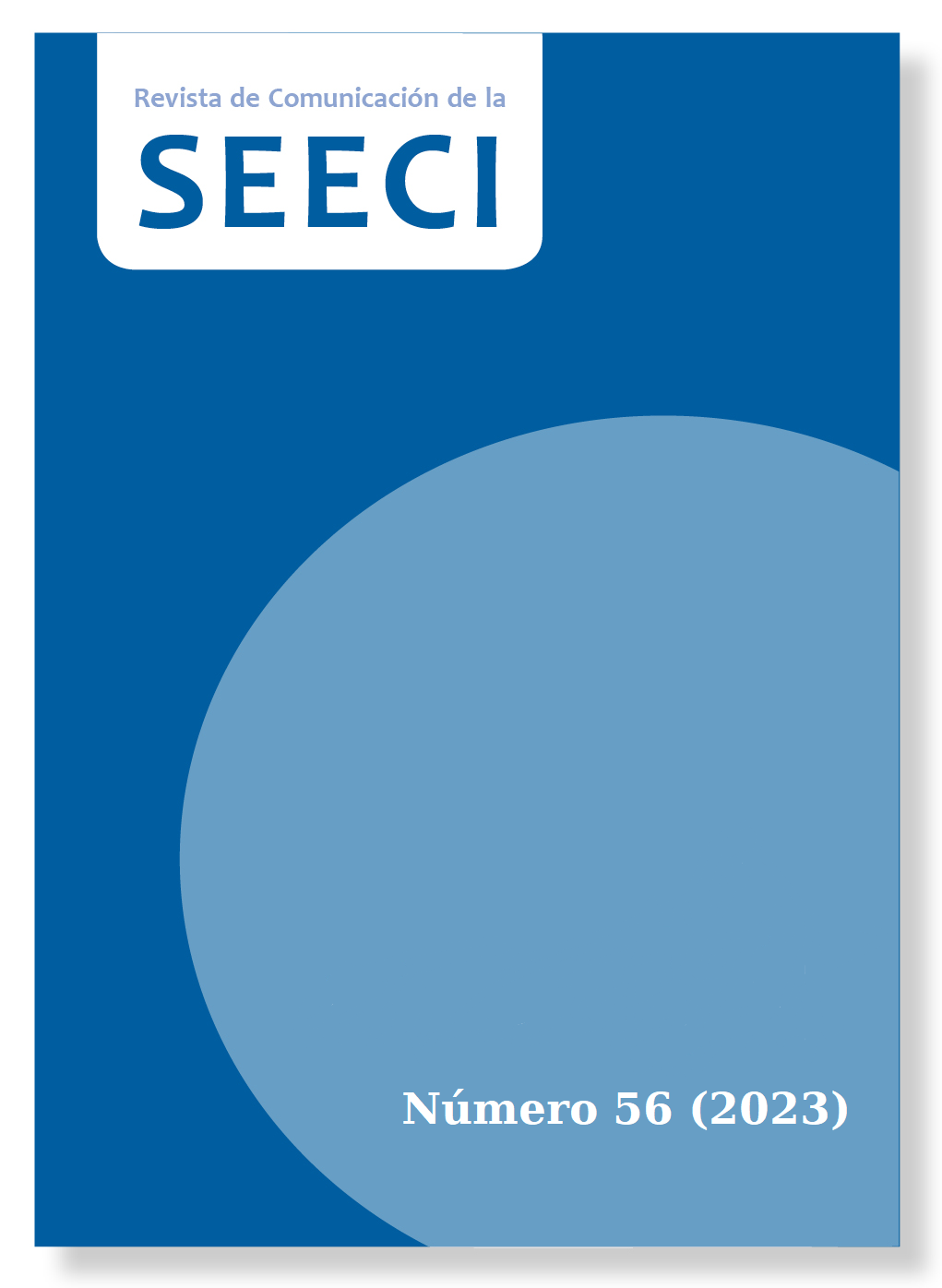MOBILE MARKETING AS A DISSEMINATION STRATEGY IN THE 4.0 INDUSTRY.
Main Article Content
Abstract
This research called mobile marketing as a dissemination strategy in industry 4.0 aims to analyze the study of research variables through scientific mapping; through this process it is possible to understand and identify phenomena and research communities which are not directly appreciable; the use of software tools for visualization allows a large number of volumes of data to be processed and accessed in the same way; through a type of descriptive-analytical research; thus, it also consents to the construction of scientific visualizations of co-occurrences and co-citations with regard to keywords; The bibliometric analysis of this study has been consolidated since the years 2019-2022 through the Lens.org tool as a platform with great scientific impact and resources in scientometric studies in areas such as social innovation, technology, education and industry; As results of the investigation, the patterns and trends were analyzed with regard to the scientific literature retrieved from databases in relation to scientific subscriptions through scientograms, which constitute a spatial representation of the patterns found through records and the relationship that exists.
Downloads
Article Details

This work is licensed under a Creative Commons Attribution-NonCommercial 4.0 International License.
The Journal of Communication of SEECI recognizes and promotes copyright rights, as well as the need to disseminate knowledge in an accessible and equitable manner. Our journal operates under a Creative Commons License CC BY-NC 4.0, which allows authors and users to:
- Share and Adapt: Copy, redistribute, and adapt the material published in the journal in any medium or format.
- Attribution: Properly acknowledge authorship and provide a link to the license, indicating if any changes have been made.
- Non-Commercial: Do not use the material for commercial purposes without the express permission of the authors and the journal.
- Authors retain copyright and may enter into non-exclusive agreements for self-archiving, deposit, or distribution of the publisher's version published in this journal, including institutional, national, or international repositories, and personal websites.
References
Araya-Castillo, L., Hernández-Perlines, F., Moraga, H., & Ariza-Montes, A. (2021). Scientometric analysis of research on socioemotional wealth. Sustainability .
Barykin, S., Lavskaya, K., Baydukova, N., Kapustina, I., & Kalinina, O. (2022). The complexity of digital marketing methodology implementation in air passenger transportation: the case of Russia. Transportation Research Procedia, 695-702. doi:https://doi.org/10.1016/j.trpro.2022.06.064
Bayram, B., & İnce, G. (2018). Advances in Robotics in the Era of Industry 4.0. Managing The Digital Transformation , 187-200.
Boydak-Öztaş, Y.-B. (2018). The Increasing Importance of Mobile Marketing in the Light of the Improvement of Mobile Phones, Confronted Problems Encountered in Practice, Solution Offers and Expectations. Social and Behavioral Sciences, 1066-1073.
Faruk, M., Rahman, M., & Hasan, S. (2021). How digital marketing evolved over time: A bibliometric analysis on scopus database. Heliyon, e08603. doi:https://doi.org/10.1016/j.heliyon.2021.e08603
Grabara, D. (2021). iPhone 11 premium mobile device offers on e-commerce auction platform in the context of Marketing Mix framework and COVID-19 pandemic. Procedia Computer Science, 1720-1729. doi:https://doi.org/10.1016/j.procs.2021.08.177
Ianenko, M., Ianenko, M., & Shevchuk, E. (2021). Digital transformation of marketing activities in transport systems management during COVID-19: experience, problems, prospects. Transportation Research Procedia, 878-886. doi:https://doi.org/10.1016/j.trpro.2022.06.085
Li-Har, L., Rashid, U., Chuan, L., Choon-Sen, S., & Xia, L. (2022). Revolution of Retail Industry: From Perspective of Retail 1.0 to 4.0. Procedia Computer Science, 1615-1625. doi:https://doi.org/10.1016/j.procs.2022.01.362
Meshko, N., & Savinova, A. (2020). Digital marketing strategy: companies experience during pandemic. Vuzf Review, 41-49.
Müller, J., Pommeranz, B., Weisser, J., & Voigt, K.-I. (2018). Digital, Social Media, and Mobile Marketing in industrial buying: Still in need of customer segmentation? Empirical evidence from Poland and Germany. Industrial Marketing Management, 70-83.
Namjoshi, J., & Rawat, M. (2022). Role of smart manufacturing in industry 4.0. Materials Today: Proceedings, 475-478.
Subriadi, A., & Baturohmah, H. (2022). Social media in marketing of ride-hailing: A systematic literature review. Procedia Computer Science, 102-109. doi:https://doi.org/10.1016/j.procs.2021.12.123
Valencia, J., Umba-López, A., Moná, M., Valencia-Arias, A., & Patiño-Vanegas, C. (2019). Evolución y tendencias investigativas en marketing orientado a industrias culturales y creativas: un análisis bibliométrico en Scopus. Semestre Económico, 189-213.
Yadav, M., Joshi, Y., & Rahman, Z. (2015). Mobile Social Media: The New Hybrid Element of Digital Marketing Communications. Procedia - Social and Behavioral Sciences, 335-343. doi:https://doi.org/10.1016/j.sbspro.2015.03.229
ARTÍCULOS RELACIONADOS
Díaz-Campo, J. y Fernández-Gómez, E. (2019). La industria del juguete en Facebook. El engagement con los usuarios durante la campaña de Navidad 2014-15. Vivat Academia, Revista de Comunicación, 148, 1-21. http://doi.org/10.15178/va.2019.148.1-21
García Rivero, A., Carbonell-Curralo, E. G., Magán-Álvarez, A. y Barberá-González, R. (2021). Marketing de influencia: educación sanitaria online. Revista de Comunicación y Salud, 11, 19-57. https://doi.org/10.35669/rcys.2021.11.e268
Mascarell Palau, D. (2020). Fomento del Mobile Learning en educación alrededor de la última década. Un estudio de caso en España través de una selección de aportaciones. Vivat Academia, Revista de Comunicación, 153, 73-97. https://doi.org/10.15178/va.2020.153.73-97
Tomba, F. Carolina, Muñoz, C. y Allisiardi, A. (2020). La responsabilidad social de la publicidad: el rol de las campañas de bien público. Vivat Academia, Revista de Comunicación, 150, 103-129. http://doi.org/10.15178/va.2020.150.103-129
Villagómez Manrique, A. R. y Acosta Gonzaga, E. (2020). Uso de redes sociales digitales como estrategia de mercadotecnia en Pymes pirotécnicas de Tultepec en el estado de México. Revista de Comunicación de la SEECI, 52, 73-93. http://doi.org/10.15198/seeci.2020.52.73-93





